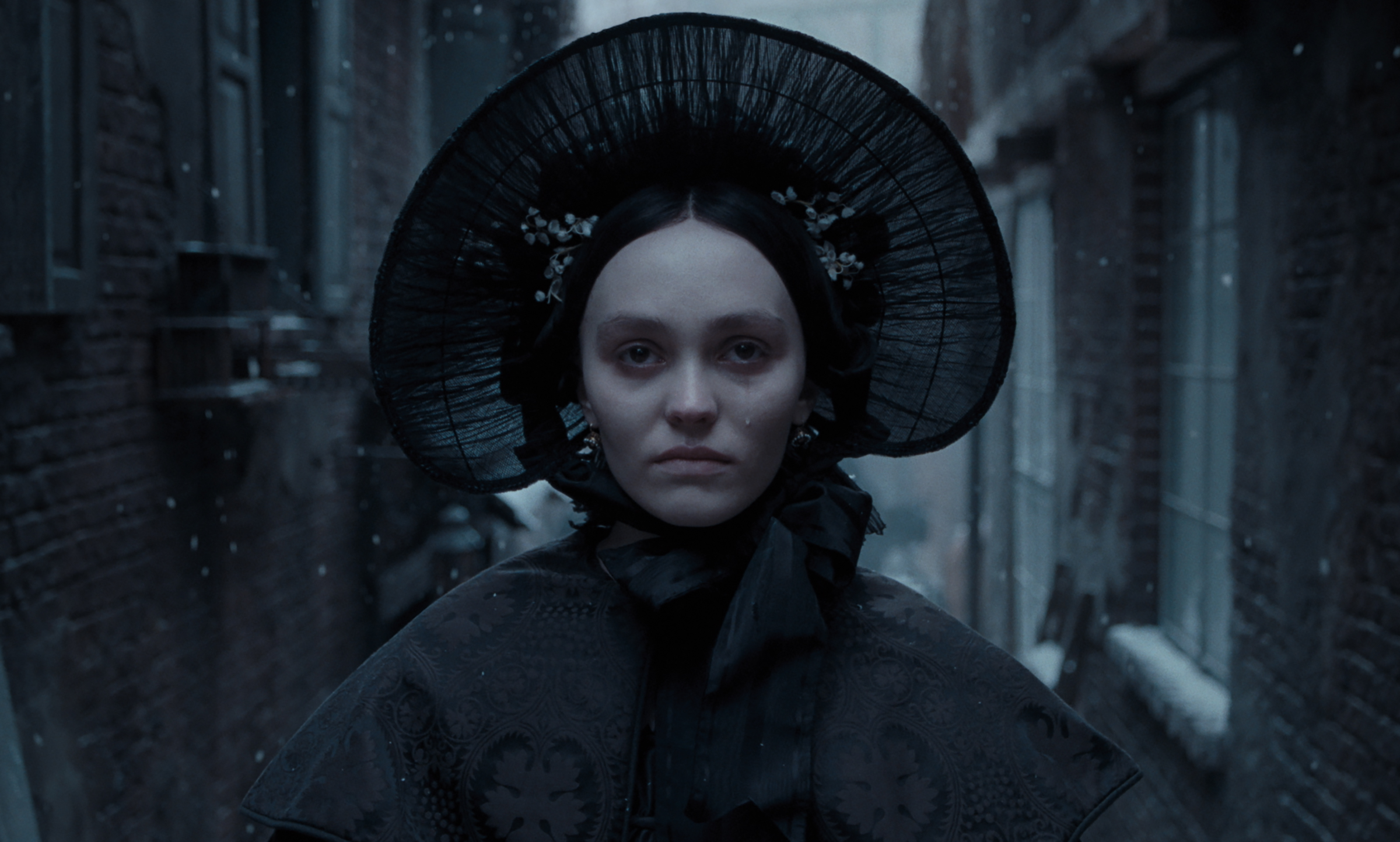With “Nosferatu,” director Robert Eggers reinvents the F.W. Murnau 1922 silent classic by emphasizing the folk tale mythology and leaning more into the supernatural. We find Ellen (Lily-Rose Depp) demonically possessed by vampire Count Orlok (Bill Skarsgård) after inadvertently awakening him from the dead. It’s a twisted reversal of “Sleeping Beauty,” in which she becomes haunted and he becomes increasingly obsessed. Be careful what you wish for.
For Linda Muir, the director’s go-to costume designer, it was essential to dig deeply into 1838 fashion for Ellen, who hails from a German village, and late 16th-century fashion for Orlok, the nobleman from Transylvania. This enabled Muir to convey the necessary authenticity, emotion, and social status of the characters, creating a costume story with its own arc.
“For me, it was interesting to have all the taboos that are embedded in the period with a character like Ellen, who’s not adhering to what the norms are,” Muir told IndieWire. “Thomas [Nicholas Hoult], her husband, wants comfort and luxury, he’s trying to do what he thinks is best for her. But she comes from all that, and she doesn’t care about it. What she wants is him, she wants love.”
Ellen valiantly fights Orlok’s power, but he’s obsessed with an all-consuming appetite for her and schemes to tear her apart from Thomas. “I thought it was fascinating to watch Bill and think that, under all of that prosthetic decay and decomposition, there was such a strong, visceral feeling of the guy, obviously wealthy, entitled, the beautiful young man that he might’ve been centuries before.”
Ellen’s wardrobe, which is part of a pre-Victorian transitional period, reflects her confined status in the male-dominated society (she’s put in a self-tightening corset to help cure her), as well as an ethereal quality as a result of Orlok’s thrall. But as she gains confidence, Ellen’s wardrobe becomes less restrictive.

“In the 1830s, women had a huge gigot sleeve, really extended puffy tops coming down into a tighter forearm,” Muir said. “Then, around 1836, that style starts to change. Women had taken all that excess fabric and didn’t want to cut it all out, it’s expensive. So they would fold it all in and then stitch it down and make it slightly smaller. So that would start to change the dimension of the sleeve.”
Since Ellen’s costume choices are reduced and they repeat costumes, Muir learned that you could make a dress with removable sleeves. “So we actually shot a scene [which was cut] where she has short sleeves as well,” added Muir. “And the long sleeve is hanging over her dressing screen at the back.”
Ellen’s most prominent evening dress is indigo with lilacs embroidered and beaded on the front and on the sleeves. This lavender hue subliminally underscores the connection between Ellen and Orlok, who remembers lilacs from when he was alive. “The period had some extraordinary patterns on the same piece of fabric: paisley, dots, ombre,” said Muir. “On the one hand, it’s very schitzy and overpowering, but I chose cotton as the fabric to make it calmer.”
Meanwhile, Muir had fun digging into the 16th-century costuming for Orlok in a way that affected everything about him, from his speech to his manners to his castle. She went for an overall look of decadence and opulence, epitomized by the gold bar-like buttons on his large cloak (called a mantle), which was lined in fur and had a massive collar. It only slightly recalled the silhouette of Max Schrek’s Orlok from Murnau’s “Nosferatu.”
The outer coat has very long arms, which got Muir researching how the men wore them. “You could put your arms through the coat and wear it, or you could wear it as more of a cape, like Dracula, without putting your arms through it,” Muir said.

“And I thought that’s really fascinating because that’s like on the super-rich nobility level, and it’s also on the poorest of the peasants in the mountain by themselves, shepherds. So Orlok has that as his major piece. And he has the Hungarian fur hat and we played with the size of that so that it appears significant.”
Muir wanted to convey the image of an ancient nobleman without overwhelming Skarsgård with a heavy outfit while obscuring enough of his decay to not arouse fear when he meets with Thomas in his castle.
“And then he has underneath a beautiful dolman, which is like a tunic,” Muir said. “And that is layered and layered and layered. It has patterned silk, and I tried to choose textiles that have a lot of gold threads because I knew [cinematographer] Jarin [Blaschke] would be using firelight and candlelight and this beautiful moonlight. So things that could twinkle and reflect back to us to give the shape of an outline.
“And then he has kind of Mick Jagger trousers,” she continued, “which are mustard-colored, kind of shiny gold thread, skin-tight trousers and a beautiful sash at his waist. And then he has the coolest footwear. He has leather. They’re like mules, so a slip-on. But for safety and comfort, they gave Bill another 4 inches or so in what is already a really beautiful, thin, tall outline.”
And, for practical purposes, Skarsgård wore a hefty harness next to his body that came through the tunic and clamped inside of the cloak because of the tremendous weight, heat, and prosthetic makeup. “So we tried to make it so that we could release him as quickly as possible,” said Muir. “We cooled him off between takes, in between setups, and not tire him out from walking around with this. It also had to look effortless, like he wouldn’t fall off, like it’s mesmerized onto his shoulders, and magical, too.”
Focus Features will release “Nosferatu” in theaters nationwide December 25.

